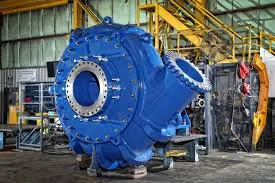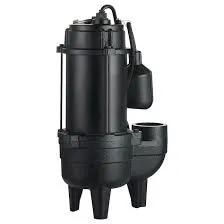TEL:
+86 13120555503
Urdu
- Afrikaans
- Albanian
- Amharic
- Arabic
- Armenian
- Azerbaijani
- Basque
- Belarusian
- Bengali
- Bosnian
- Bulgarian
- Catalan
- Cebuano
- Corsican
- Croatian
- Czech
- Danish
- Dutch
- English
- Esperanto
- Estonian
- Finnish
- French
- Frisian
- Galician
- Georgian
- German
- Greek
- Gujarati
- Haitian Creole
- hausa
- hawaiian
- Hebrew
- Hindi
- Miao
- Hungarian
- Icelandic
- igbo
- Indonesian
- irish
- Italian
- Japanese
- Javanese
- Kannada
- kazakh
- Khmer
- Rwandese
- Korean
- Kurdish
- Kyrgyz
- Lao
- Latin
- Latvian
- Lithuanian
- Luxembourgish
- Macedonian
- Malgashi
- Malay
- Malayalam
- Maltese
- Maori
- Marathi
- Mongolian
- Myanmar
- Nepali
- Norwegian
- Norwegian
- Occitan
- Pashto
- Persian
- Polish
- Portuguese
- Punjabi
- Romanian
- Russian
- Samoan
- Scottish Gaelic
- Serbian
- Sesotho
- Shona
- Sindhi
- Sinhala
- Slovak
- Slovenian
- Somali
- Spanish
- Sundanese
- Swahili
- Swedish
- Tagalog
- Tajik
- Tamil
- Tatar
- Telugu
- Thai
- Turkish
- Turkmen
- Ukrainian
- Urdu
- Uighur
- Uzbek
- Vietnamese
- Welsh
- Bantu
- Yiddish
- Yoruba
- Zulu
Telephone: +86 13120555503
Email: frank@cypump.com
فروری . 10, 2025 09:31 Back to list
chemical liquid pump
Navigating the diverse and intricate world of chemical liquid pumps unveils a spectrum of opportunities that businesses can seize to enhance their operational efficiency. Chemical liquid pumps stand as vital instruments in industries ranging from pharmaceuticals to petrochemicals, providing not only functionality but also safety and precision. The significance of selecting the appropriate pump extends beyond mere operational efficacy; it encompasses considerations of chemical compatibility, flow rate requirements, and maintenance needs, each demanding a tailored approach.
Trustworthiness, as an attribute in selecting chemical liquid pumps, comes from choosing manufacturers and products with a proven track record. Reputable brands often provide extended warranties, robust customer support, and a wealth of technical documentation. This reliability is crucial when pumps are employed in critical processes where failures can lead to costly downtimes or hazardous situations. Furthermore, third-party certifications and compliance with international standards, such as ATEX for explosion-proof usage, can reinforce confidence in the chosen equipment. Enhancements in Industry 4.0 and IoT technologies have further bolstered the realm of chemical liquid pumps. Smart pumps now enable real-time monitoring and predictive maintenance, significantly reducing the risk of unexpected failures. Incorporating advanced sensors and data analytics, these pumps not only alert operators to potential issues but also assist in optimizing processes through actionable insights. Thus, selecting a chemical liquid pump is a multifaceted decision-making process that requires careful consideration of numerous factors aligned with the specific needs of one's operations. By approaching this choice with experience, expertise, and a keen eye for trustworthiness and authority, industries can ensure their chemical handling processes remain efficient, safe, and cost-effective.


Trustworthiness, as an attribute in selecting chemical liquid pumps, comes from choosing manufacturers and products with a proven track record. Reputable brands often provide extended warranties, robust customer support, and a wealth of technical documentation. This reliability is crucial when pumps are employed in critical processes where failures can lead to costly downtimes or hazardous situations. Furthermore, third-party certifications and compliance with international standards, such as ATEX for explosion-proof usage, can reinforce confidence in the chosen equipment. Enhancements in Industry 4.0 and IoT technologies have further bolstered the realm of chemical liquid pumps. Smart pumps now enable real-time monitoring and predictive maintenance, significantly reducing the risk of unexpected failures. Incorporating advanced sensors and data analytics, these pumps not only alert operators to potential issues but also assist in optimizing processes through actionable insights. Thus, selecting a chemical liquid pump is a multifaceted decision-making process that requires careful consideration of numerous factors aligned with the specific needs of one's operations. By approaching this choice with experience, expertise, and a keen eye for trustworthiness and authority, industries can ensure their chemical handling processes remain efficient, safe, and cost-effective.
Share
Latest news
-
ISG Series Pipeline Pump - Chi Yuan Pumps Co., LTD. | High Efficiency, Low Noise
NewsAug.09,2025
-
ISG Series Pipeline Pump - Chi Yuan Pumps | Efficiency, Durability
NewsAug.09,2025
-
Non Clog Sewage Pump: Submersible & High-Flow Solutions
NewsAug.09,2025
-
ISG Series Vertical Pipeline Pump - Chi Yuan Pumps Co., LTD.|High Efficiency, Compact Design
NewsAug.09,2025
-
ISG Series Vertical Pipeline Pump-Chi Yuan Pumps|High Efficiency&Low Noise
NewsAug.09,2025
-
ISG Series Vertical Pipeline Pump - Chi Yuan Pumps | High Efficiency & Energy Conservation
NewsAug.08,2025










